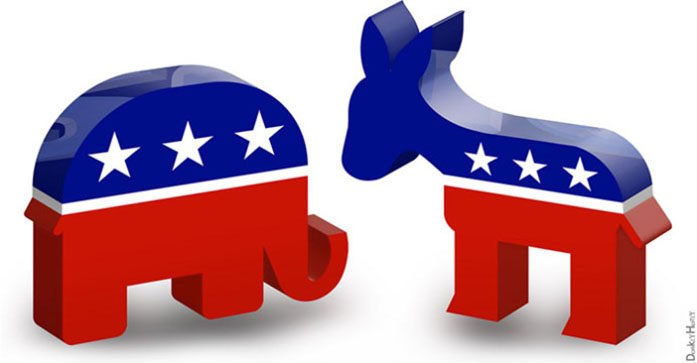During this election cycle, there have been a lot of doomsday scenarios painted by candidates on both sides of the aisle.
On the Republican side, there is Donald Trump’s “Make America Great Again” complete with overly dramatic prophecies of a world in which the United States is irrelevant. And on the flip side, there’s the Sen. Bernie Sanders, I-Vt., and his depiction of how he sees the world: a dystopian version of the United States, a world in which the top 1 percent of the top 1 percent gains exorbitant wealth while the working class falls into an ill-educated and unsupported state of disarray.
The world, however, isn’t in nearly as bad of shape as some of the candidates would have you believe. Among ISIS threats, nuclear proliferation, income inequality, college costs, and boogeyman-like depictions of immigrants, it’s easy to get caught up in the necessity of changing the status quo. But there are reasons to believe the world — with respect to these issues — is going to be OK. Last week, for example, the Huffington Post published an article explaining that job prospects for recent college graduates are the best they’ve been in nearly a decade (i.e., before the Great Recession).
However, when it comes to issues of equal importance but lesser attention, the — admittedly few — candidates painting somber pictures may be right. The same article referred to above showed that while male graduates earn roughly 8 percent more in 2016 than they did in 2000, their female counterparts earn roughly 7 percent less than they did in 2000. There are a variety of reasons for this gap, including flat-out inequality, selection of college major, and work experience; but that there is a 15 percentage point difference in income change over the past 16 years is inexcusable.
Even in the Daily Iowan Editorial Board’s endorsement of Sanders, we failed to seriously address income inequality between men and women as a major issue. There are, of course, equally or more pressing topics that have been addressed by candidates, but they have also failed to focus on some areas in which real issues lie.
Because of the way the U.S. government is set up — that is, with a system of checks and balances and a frequently overwhelming level of bureaucracy — change happens slowly, and history-altering legislation such as the Affordable Care Act or judicial decisions such as the one that legalized same-sex marriage in the United States either take a great amount of time or never happen at all.
Candidates enjoy standing high atop their soap boxes and preaching to the American public about the drastic changes that are coming down the pipeline. For example, Sen. Ted Cruz’s misplaced and absurd promise to roll back the Supreme Court actions legalizing same-sex marriage and to repeal “every word of Obamacare.” Yet when it comes to things that are legitimate issues that stand a chance of real change, such as wage inequality, candidates often fail to make these the cornerstones of their platforms.
In our endorsement of Sanders, the Editorial Board said, “We would rather support someone who tries to create meaningful change on vital issues and fails than someone who would maintain the status quo and succeed.”
And while we did not specifically spend time addressing women’s wage inequality, the vital issues to which the board referred were those that are realistic, will stand the test of time, and truly matter.



